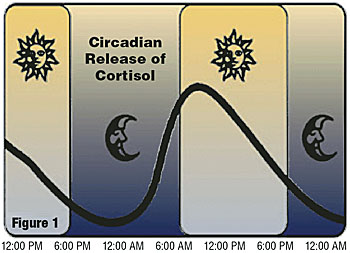You Won’t Believe What Lack of It Can Do To You!
Carol Shwery, DC, CCN & Lonna Larsh, MD
Do you sleep like a baby or do you sleep like a rock? As any new parent can tell you, sleeping like a rock is better. Babies’ sleep cycles are shorter than adults’ as it takes some time for them to develop long sleep cycles and to learn how to fall back to sleep. How about you? Do you sleep “like a rock” for 7 to 8 hours a night and wake up refreshed and ready to take on the day? Or do you have trouble getting and staying asleep? Do you find that you are tossing and turning, or getting up multiple times a night?

The ideal amount of sleep varies for each individual, but the average adult’s basal sleep need (how much we need on a regular basis to perform optimally) is 7 – 8 hours. Most of us also have a sleep debt – sleep that is lost to poor habits, sickness, or getting woken up by the baby. While we can’t predict how much sleep you as an individual need, we can predict you will have health problems if you don’t sleep. If you don’t get enough sleep, your body cannot rejuvenate and repair. You are at greater risk for obesity, diabetes, heart disease, depression and car accidents. You probably knew that. The tricky part is finding the cause of your sleep deprivation.
Cortisol gives you the energy to do the things you need and love to do during the day and then gently declines so you can be calm, relaxed, and sleepy at night. If it’s out of synch with cortisol low in the morning and elevated at night, your head can hit the desk during the day, but be ready to rumble at night while you’re trying to sleep.
Not sleeping is bad enough by itself, but it turns out it also makes you fat. Oh no! Research at The University of Colorado has shown that reducing sleep by even a couple of hours a night for one week will increase weight/fat gain! The participants in this study got five hours of sleep a night for a week. They actually burned an additional 110 calories a day, which may seem like a good thing. But it turns out that the study participants ended up eating more fats and carbohydrates; not so good. By the end of the week they had gained an average of 2 pounds each.
The director of the study said that the weight gain was in part behavioral. “We found that when people don’t get enough sleep they over eat carbohydrates. They ate more food, and when they ate also changed. They ate a small breakfast and a lot more after dinner. They ended up eating a lot more calories in after dinner snacking than any other meal during the day.”
Sound familiar? Furthermore, they found that sleep deprivation caused fat cells to become more resistant to insulin. Insulin resistance is the process that underlies Type 2 diabetes; the kind that you may recall is “an epidemic”… unless you’ve been hiding under that rock we mentioned earlier.
What can we do to stop this process of insomnia, increased cortisol, nighttime insulin resistance and fat production? Here are a few suggestions:
- Meditate.
- Have a breathing exercise routine you do throughout the day.
- Be grateful.
- Do not eat three hours before bedtime. If you have a high carbohydrate meal, wait five hours before sleeping.
- If there’s a chance you have sleep apnea, which interrupts healthy sleep, get tested and treated.
- Finally, find a qualified functional medical doctor to test adrenal function to find out if this is a problem for you.
We’d love to talk with you about this. Let us give you a complimentary Get Your Health Back Discovery Session where we will discuss your health challenges, your health goals, and get you on the road to better health.
•••
Carol Shwery, DC, CCN. 831 Bay Ave., Capitola, CA. 831-476-6906, Website: www.holistichealthandwellnesssolutions.com and Lonna Larsh, MD, Website: www.wholefamilymd.com/3001.html